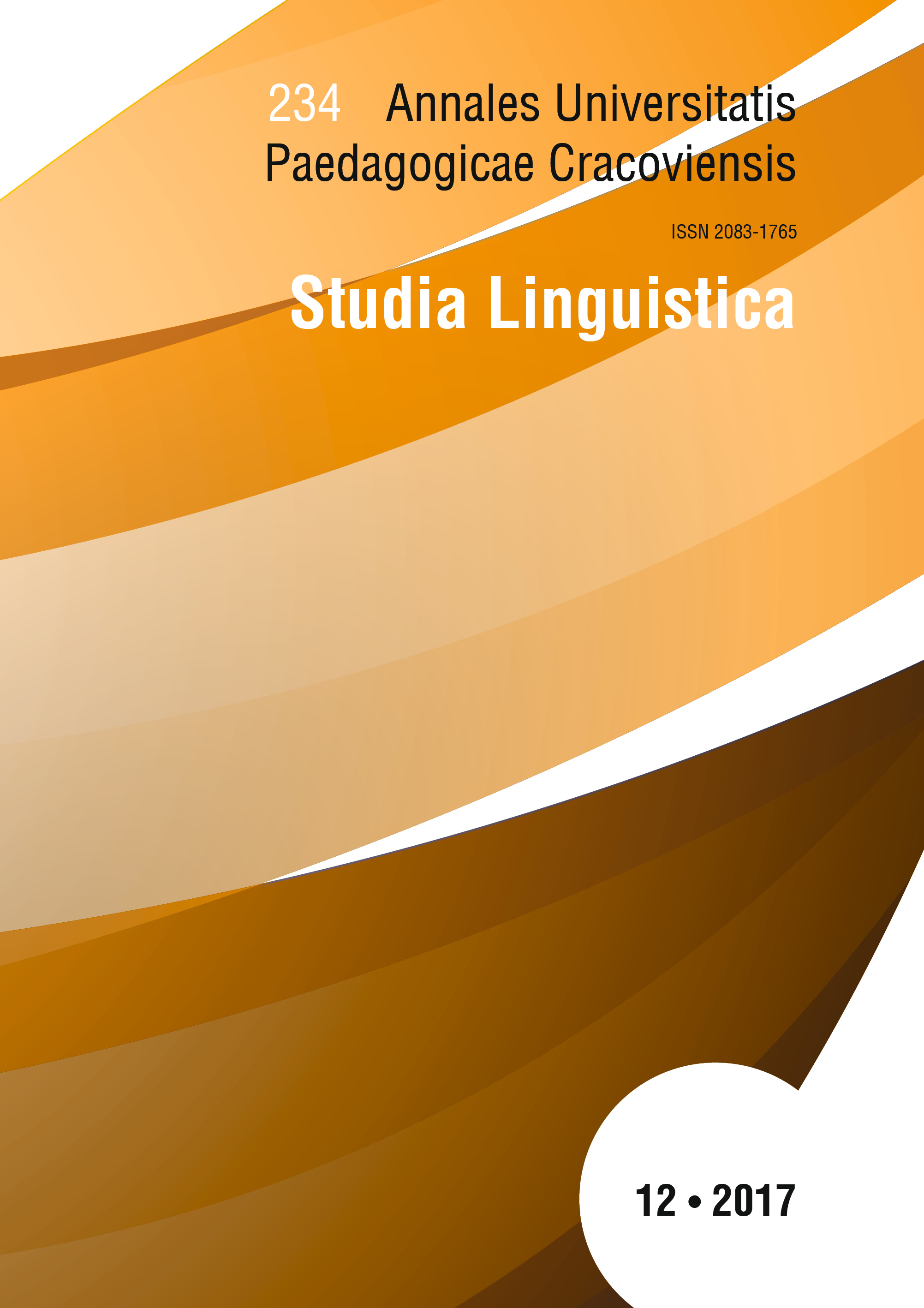Cultural Information in the General Polish Language Dictionary, or More about the Tradition in the Eyes of a Lexicographer
Main Article Content
Abstract
The aim of the article is to discuss whether additional cultural information, explicitly formulated, i.e. apart from definitions in some types of entries and apart from linguistic material (collocations and quotations), should be included in a general monolingual dictionary. On the example of a few lexical units from the semantic field ‘Tradition’ the author points out that this kind of explanations will be valuable from the perspective of an intercultural and intergenerational mediation. As it appears, the elements of cultural description have to be divided between various fields of the microstructure of entries and, alas, the pattern of cultural information for the analyzed units should not be repeated. The author postulates another solution for some methodological problems which can be an additional field, allocated for the cultural information and closely connected with the definition.
Downloads
Article Details
Author, submitting a text to the editorial board of the journal “Annales Universitatis Paedagogicae Cracoviensis. Studia Linguistica", certifies that the content of the article has not been published so far and that the work does not violate in any way the copyright or related rights of other person, as well as other rights of third parties, and that no one's rights to the work (or any part thereof) have been missed. After signing the contract, the property rights to the published materials are transferred to the Scientific Publisher of the University of the National Education Commission, Krakow.
“Annales Universitatis Paedagogicae Cracoviensis. Studia Linguistica” is an open access journal, and all its content is made available free of charge to users and institutions under the Creative Commons CC-BY-NC-ND 4.0 license (attribution, non-commercial use, no derivative works). Under this license, the authors agree that their work may be lawfully reused for any purpose, except for commercial purposes, without the prior consent of the author or publisher. Everyone can read, download, copy, print, distribute and process these works, provided that the author's marking and the original publication place are correct. Published texts may not be used to create derivative works (e.g. to translate and publish in another language without the consent of the publisher). This is in line with the BOAI (Budapest Open Access Initiative) definition. "Studia Linguistica" does not charge for submitting or processing articles.
References
Apresjan J.D., 1972, Definiowanie znaczeń leksykalnych, [w:] Semantyka i słownik, red. A. Wierzbicka, Warszawa.
Google Scholar
Bańko M., 2001, Z pogranicza leksykografii i językoznawstwa. Studia o słowniku jednojęzycznym, Warszawa.
Google Scholar
Bartmiński J., 1984, Definicja leksykograficzna a opis języka, [w:] Słownictwo w opisie języka, red. K. Polański, Katowice, s. 9–19.
Google Scholar
Bielińska M., 2008, Słownik pośrednikiem między kulturami? Analiza jednojęzycznych słowników języka niemieckiego jako obcego, [w:] Kontakty językowe i kulturowe w Europie. Sprach- und Kulturkontakte in Europa, red. A. Kątny, Studia Germanica Gedanensia 17/1, s. 255–266.
Google Scholar
Czelakowska A., 2012, Wielki słownik języka polskiego PAN jako słownik elektroniczny, „Język Polski” XCII, z. 5, s. 336–347.
Google Scholar
Czelakowska A., 2014, Polisemia regularna − między semantyką a kontekstem, „LingVaria” nr 1 (17), s. 45–58.
Google Scholar
Czelakowska A., 2016, Nieufnym okiem prawnika, czyli najnowszy (elektroniczny) słownik języka polskiego Polskiej Akademii Nauk z punktu widzenia wykładni językowej, „Kwartalnik Sądowy Apelacji Gdańskiej” nr 2, s. 7–27.
Google Scholar
Grochowski M., 1982, Zarys leksykologii i leksykografii, Toruń.
Google Scholar
Kowalik K., 2011, Polska tradycja tradycji w świetle opracowań leksykograficznych, „Annales Academiae Paedagogicae Cracoviensis. Studia Linguistica” t. VI: Dialog z tradycją, cz. 1, Kraków, s. 21−29.
Google Scholar
Ligara B., 2009, Leksykultura w ujęciu Roberta Galissona a nauczanie kompetencji kulturowej, [w:] W poszukiwaniu nowych rozwiązań. Dydaktyka języka polskiego jako obcego u progu XXI wieku, red. W. Miodunka, A. Seretny, Kraków, s. 51–61.
Google Scholar
Nagórko A., 2004, Metody kontrastywne a etnolingwistyka (lingwistyka kulturowa), [w:] Multikulturowość, tożsamość narodowa, mniejszości na Węgrzech i w Polsce, red. E. Fórián, Debreczyn, s. 23–33.
Google Scholar
Rak M., 2015, Co to jest kulturem?, „LingVaria” 2 (20), s. 305−316.
Google Scholar
Zarzycka G., 2004, Linguakultura – czym jest, jak ją badać i „otwierać”?, [w:] Wrocławska dyskusja o języku polskim jako obcym, red. A. Dąbrowska, Wrocław, s. 435–445.
Google Scholar
Żmigrodzki P., 2010a „Definicja leksykograficzna a opis języka” – ćwierć wieku później. Jeszcze o roli naiwnego obrazu świata w definiowaniu, [w:] Etnolingwistyka a leksykografia, red. W. Chlebda, Opole, s. 33−40.
Google Scholar
Żmigrodzki P., 2010b, Jednojęzyczny słownik ogólny jako środek komunikacji międzykulturowej (na marginesie prac nad Wielkim słownikiem języka polskiego PAN), „Biuletyn PTJ” 66, s. 35−49.
Google Scholar
